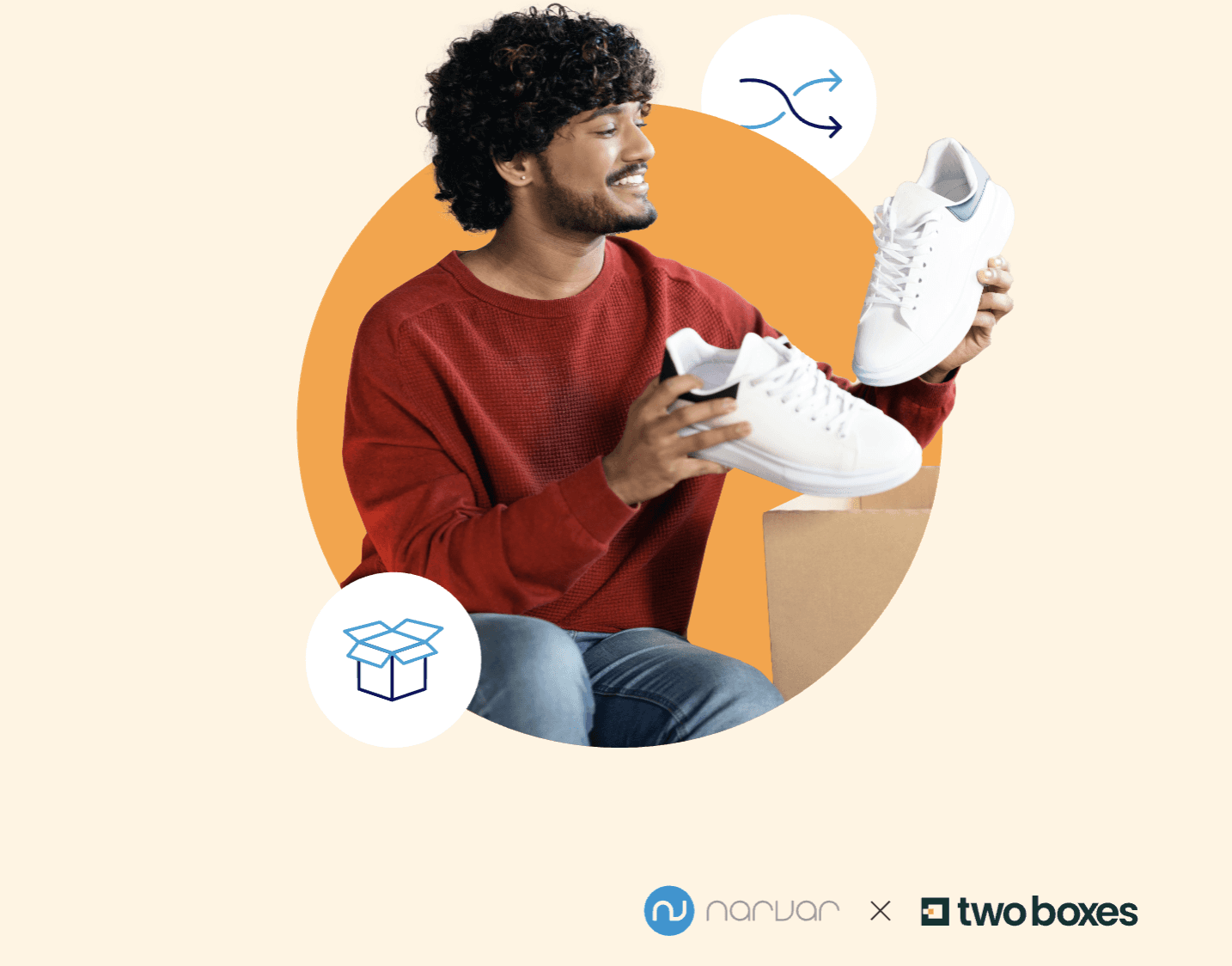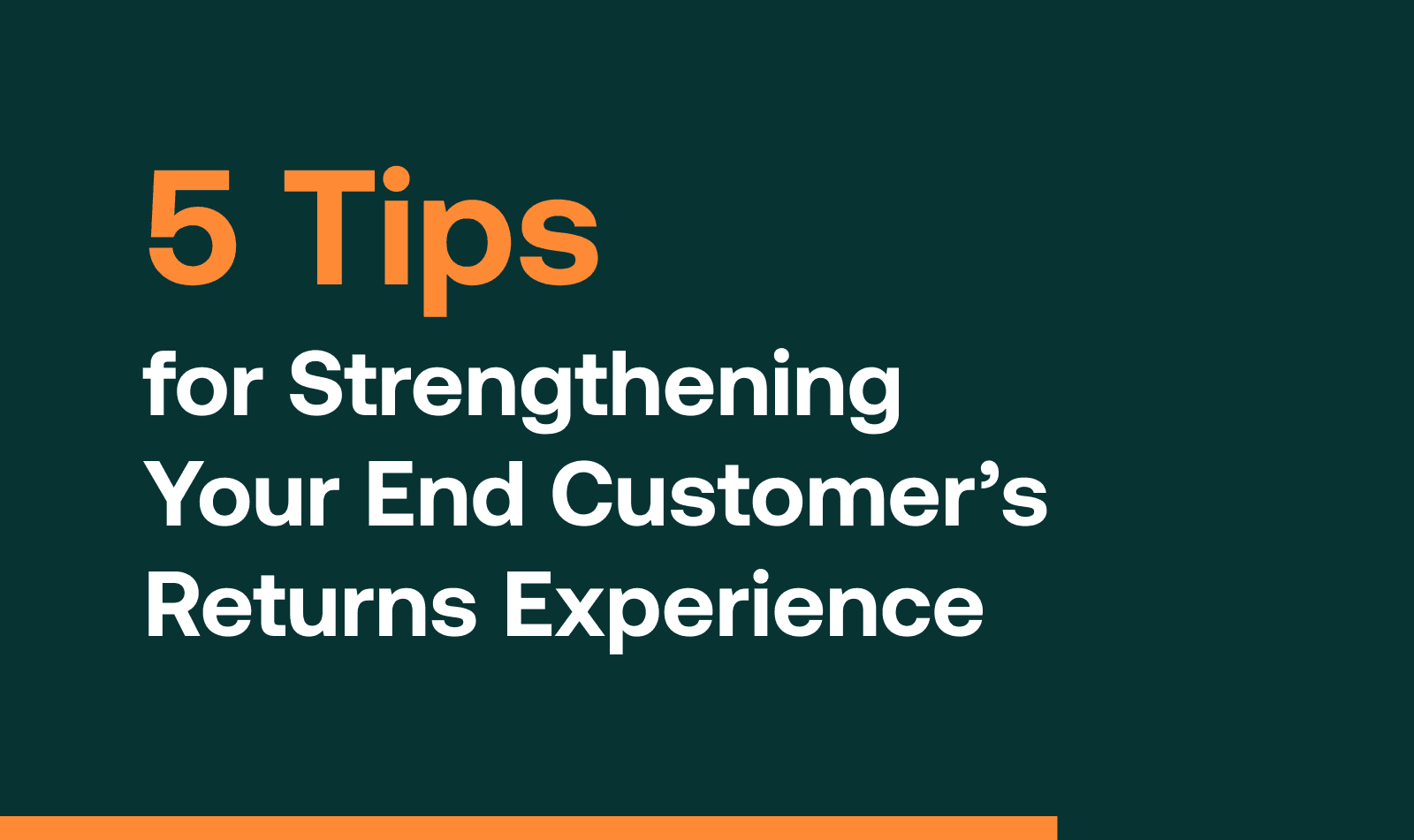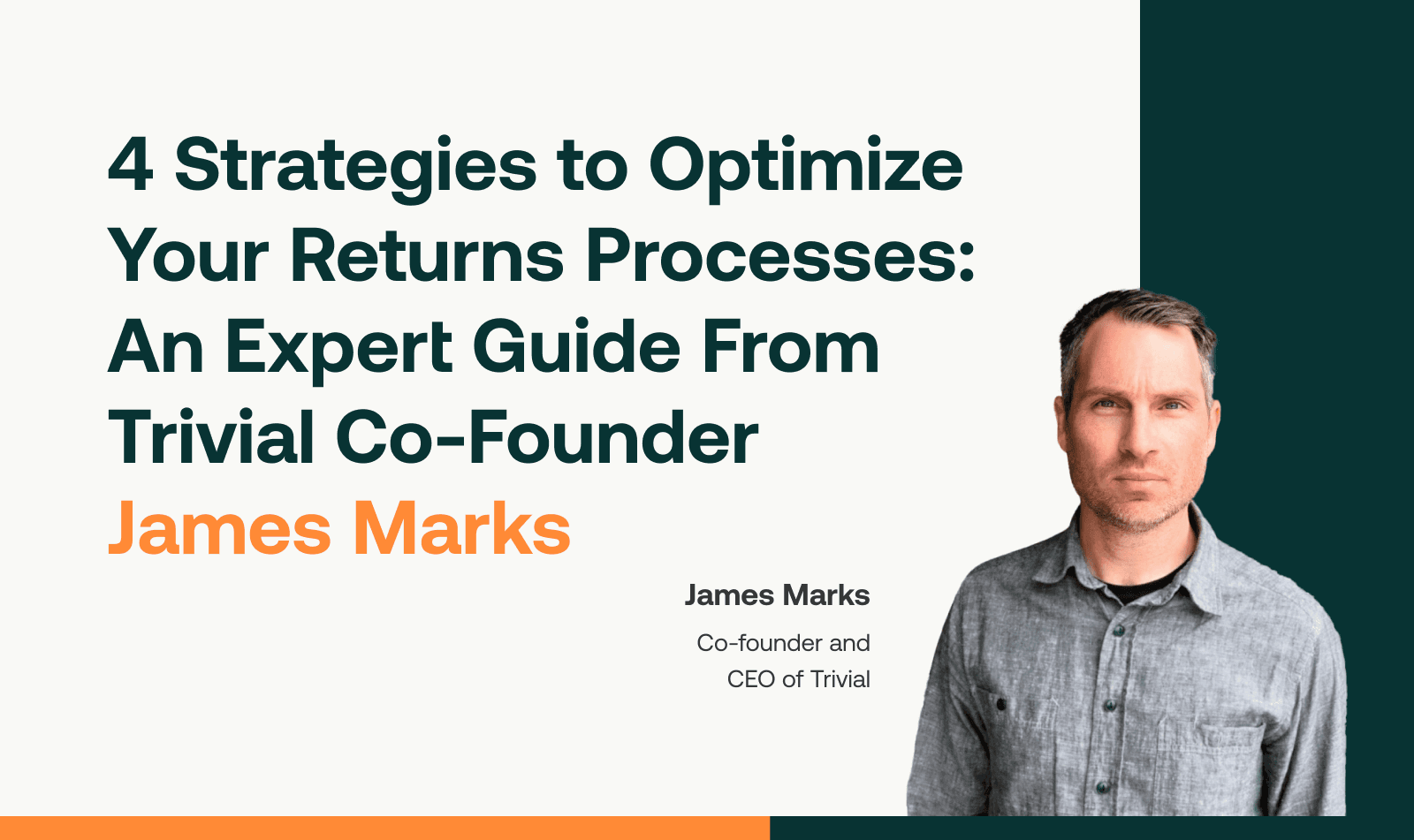Blog

Jun 27, 2024
Third Person Co-Founder Matthew Hertz on finding a 3PL partner for stress-free returns
Building a successful ecommerce brand is easier said than done. While you can start a store on Shopify faster than ever, the logistical challenges of running a business quickly add up as orders roll in. Without a solid plan for your brand, managing every step in your supply chain, including returns, can become complex.
As hurdles arise from trying to deliver top-tier customer service, returns processing is often put on the back burner. If not inspected promptly, returned items can end up sitting in storage or unnecessarily destroyed, negatively impacting your bottom line.
3PLs can transform your reverse fulfillment into a simple, streamlined process. With their help, you can get more inventory back into stock faster, increasing sales and reducing storage costs.
We sat down with Matthew Hertz, co-founder of Third Person and Second Marathon, to get his thoughts on how brands can change returns from a time-sink into a customer benefit. His 15+ years of ecommerce experience gives him valuable knowledge to help emerging brands simplify their fulfillment processes.

The immediate benefits of efficient returns management
Efficient returns management offers your brand a unique chance to build customer trust and stand out in a crowded market.
It starts with how you manage incoming shipments. Matthew explains that investing in the returns process gives critical data about customer preferences that show why items are sent back so they can be prevented in the future. Even when your customers do need to send something back, offering exceptional customer service creates an opportunity to build loyalty.
Instead of seeing returns as a burden, Matthew urges brands to reframe them as an opportunity to stand out, thanks to:
Enhanced customer experiences
Building a returns process that is quick and painless shows your commitment to excellence at every customer touchpoint. Customers want to feel like their time and effort are valued, even though their purchase didn’t go as planned.
Clear communication, from customer support to return shipment tracking, reinforces their trust in a swift process. Promptly receiving and issuing refunds shows that your brand is reliable. Matthew notes that personalized interactions throughout the return process, such as hands-on assistance, can encourage customers to come back for future purchases.
Data insights
Returns data equips your brand with knowledge about customer behavior and product performance. Matthew points out that without clear insight into return reasons, your brand risks staying stuck in a cycle of unhappy customers. Analyzing why items are returned shows why the customers are dissatisfied, allowing you to address the issues and improve over time.

Cost savings
Returns processing is often a significant source of inefficiency and financial strain for brands. But Matthew says it can just as easily be a source of cost savings by reducing wasted stock and maximizing the value of returned items.
Faster processes for inspecting and refurbishing items save time and labor costs on each return. As items are restocked and sold more quickly, storage costs for returned inventory drop significantly. As a result, your brand can maintain a healthy stock while reinforcing your financial stability.
Sustainability
Mismanaged returns can lead to inventory write-offs, lost income, and increased operational costs. But when handled properly, sellable items can be returned to stock to maximize the chance of a final sale.
By swiftly restocking returned items or refurbishing them for resale, brands can recoup the value that would otherwise be lost. You simultaneously boost revenue while minimizing financial losses, holistically improving your entire business.

How your brand can find the right 3PL partner to improve returns
3PLs offer hands-on support and logistics expertise, including with your returns. They’re the first to inspect and process every item, confirming refunds or replacements based on your return policy.
Matthew and his team at Third Person match brands with their perfect 3PL partner. Finding the right pairing creates a long-standing partnership built on mutual trust. But with thousands of possible 3PLs in the US, the trick becomes finding the right one for your brand.
These three best practices, tried and tested by the experts at Third Person, will help you find a 3PL partner who can support every step of fulfillment through returns:
1. Look for adaptable providers
As your business evolves, so too do your logistics needs. Your partner must be able to adapt to fluctuations in demand, seasonal peaks, and future expansions without compromising service quality or operational efficiency.
Matthew recommends starting with an assessment of a 3PL’s capabilities. Review their experience, the technologies they use, and whether they can effectively handle returns. Not every 3PL is equipped for reverse fulfillment. But the right 3PL partner aligns with your needs to meet expectations and helps grow your business.
Seek out providers with a proven track record in your industry who can offer insights and solutions tailored to your specific challenges. That way, you are guaranteed to receive support that puts your needs first, rather than having to fit within a 3PL’s limitations.

2. Prioritize easy integration with existing technology
Matthew emphasizes the importance of evaluating potential 3PL partners based on their compatibility with your ecommerce tools. Using the same technology and software makes it easier to send data back and forth and allows both sides of the partnership to better communicate with one another.
Brands should look for partners who embrace technological advancements rather than stick to outdated practices. Incorporating modern solutions leads to a simpler returns process, but only if both you and your 3PL partner are using the same tools. Otherwise, you risk seeing and reacting to inconsistent data, which creates confusion.

3. Maintain your personalized touch
Effective communication between partners fosters trust, alignment, and mutual understanding, laying the foundation for a productive and collaborative relationship. Matthew recommends finding partners who:
Prioritize open communication channels: Easy communication via Slack or Microsoft Teams ensures any return-related issues or questions are shared and resolved immediately.
Provide dedicated account management: A direct point-of-contact within the 3PL provides support to fulfill your brand’s specific reverse fulfillment needs.
Address your feedback promptly: 3PLs that provide rapid responses to your communication are committed to quality customer service that prevents misunderstandings and potential delays.
Align with your culture: Ask questions about their company culture and how they work with clients to gauge whether they align with your goals.
The end result is a reliable collaboration that delights customers every time, even in cases of returned items.

Get started towards a stress-free returns process with Two Boxes
Two Boxes helps brands and 3PL providers simplify returns from warehouse receiving to putting the items back in stock. It also gives both sides of the partnership access to real-time returns data and analytics, making it easier to spot fraud, monitor restock rates, and forecast your reverse fulfillment processes. As Matthew says:

Thriving in a competitive ecommerce landscape demands innovation at every stage of production, returns included. Two Boxes helps your brand forge strong partnerships with forward-thinking 3PLs to continue growing while delighting customers.
Ready to let returns grow your business?
At Two Boxes, we make returns an asset instead of a liability. Book a demo today and get started!
Stay in the know!
Join our community today.
Signup




